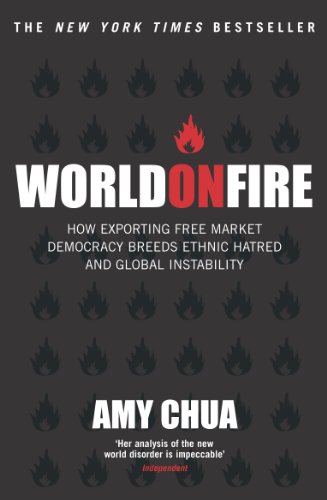In retrospect, champions of globalization and its positive impact on economic growth, for example Thomas Friedman, for a long time believed that countries that adopted the ‘free markets’ democracy stood to increase prosperity. Author Amy Chua, counters this liberal argument on an ethnic perspective. She tries to elaborate how a small percentage of the ethnic minority in a particular country for instance, enjoys hugely disproportionate economic powers.
Economic liberalization promoted through democracy and deregulation was meant to create equality and prosperity across different classes of the population. However, Amy Chua subtle analysis suggests that when power is concentrated on a few individuals or favors a particular group of citizens, then socio-economic balance gets tilted and this triggers internal conflict. Her personal experience reflects the unstable foundation a number of countries have anchored their economies and to a large extent wealth generation strategies. Page 2 illustrates the gruesome murder of her aunt by her then chauffer from the Philippines. The context of the case suggests that majority of native Filipinos felt they were deprived of opportunities to prosper hence confining them to abject poverty. This led to silent retaliation towards minority ethnic Chinese civilians who were perceived to be economically favored and ultimately exploded to full-blown violence. Page 5 connects the events in the Philippines to the 1994 Rwanda genocide which was sparked by growing discontent among the Hutus who were the majority ethnic tribe and who felt left out by the Tutsi. Chua’s remarkable analysis should enable both private and public institutions to discuss and develop wealth distribution mechanisms to avert potential crises from dissatisfied groups within the society.
As I analyze current regimes, a number of sitting heads of states got elected by promoting the ‘we vs. them’ message which speaks to the hearts of the natives while threatening the existence of the minority. This harsh reality compounded by tough macroeconomic conditions can ignite tensions and chaos.



